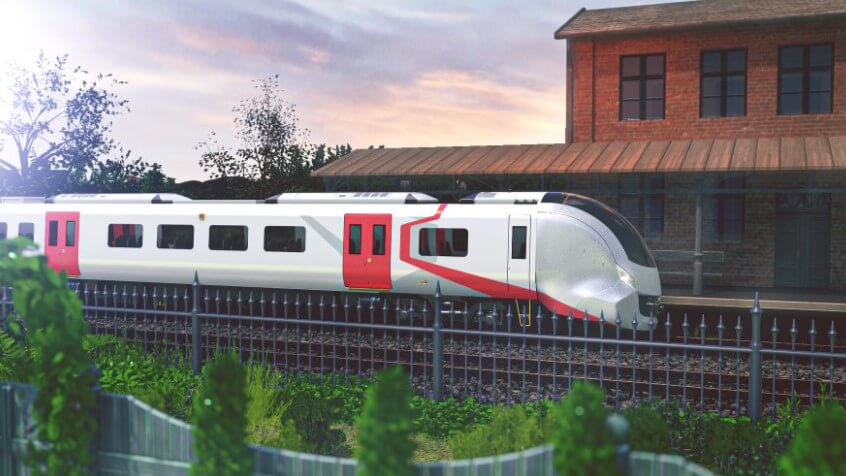Hitachi Rail Leads Public-Private Partnership to Develop Next-Generation Battery Train Technology

A public-private collaboration, led by Hitachi Rail, is developing advanced battery technology to revolutionize the future of commuter and suburban trains.
The partnership is focused on creating a smaller, lighter battery pack that delivers impressive power, aiming to enhance train accessibility and performance while reducing environmental impact.
The new battery technology builds upon intercity battery trials currently underway on the Transpennine route, designed for regional trains. The next-generation battery pack will be 40% smaller and provide a 22% increase in energy density, thanks to the cutting-edge Lithium Iron Phosphate (LFP) battery chemistry.
The innovation is being supported by Sunderland-based battery supplier Turntide Technologies, which brings expertise from the automotive industry to the rail sector.
One key advantage of a smaller battery is the ability to accommodate inclusive design features, such as lower floors on trains, which enable level access at platforms. Lower train floors typically provide less space for batteries, making this development crucial for promoting accessibility in modern rail travel.
A more compact battery also means reduced weight, easier maintenance, and a streamlined retrofitting process for existing train fleets. These benefits will also be applied to the intercity battery train product currently being trialled, ensuring Hitachi Rail is positioned to offer battery solutions for both regional and intercity routes.
DB ESG, a project partner, is leading the design of the battery enclosure, which will include fire protection, cooling capabilities, and electrical integration. By building on their experience from the intercity battery trial, DB ESG is working to simplify maintenance and enhance efficiency in future battery train operations.
The Birmingham Centre for Railway Research and Education (BCRRE) at the University of Birmingham is playing a key role in optimizing the design and use of the new battery technology. Through railway simulations, the center is testing the battery’s performance on representative UK routes, including those in the North of England. The collaboration will also enhance BCRRE’s railway simulator, providing new knowledge and skills for future students and graduates.
The £1.4 million research and development project is being co-funded by both the private and public sectors, with Innovate UK providing match funding to promote battery innovation in the UK’s rail industry. The project aims to advance inclusivity in railway design, while also creating new opportunities for skill development at the University of Birmingham.
Koji Agatsuma, Chief Technology Officer for Vehicles at Hitachi Rail, highlighted the project’s significance: “The acceleration of battery innovation is incredible. This is why at Hitachi, we use our expertise from Italy, Japan, and the UK to ensure our partners remain at the forefront of battery technology.
Continuous improvement means we are always working on the next generation of smaller and more powerful batteries to reduce costs on railways by negating electrification infrastructure spend or removing diesel engines entirely.”
Agatsuma also emphasized Hitachi’s role in developing British battery expertise, with plans to apply the technology across global rail networks. “Our partnership with Innovate UK and the University of Birmingham means Hitachi is playing an active role in growing new skills in the British battery sector, while also developing battery solutions that can be used on railways across the globe.”
Professor Pietro Tricoli, Power Electronics lead at the Birmingham Centre for Railway Research and Education, highlighted the project’s potential to accelerate the decarbonization of regional rail services: “This proposed project includes a comprehensive research programme aimed at optimising the design and the usage of the battery when the train travels in the non-electrified parts of the network.
“We will provide our expertise with railway simulations to investigate the routes for which batteries are the most effective in replacing diesel trains. This will accelerate the decarbonisation of rail transport in the regional sector, benefiting many passengers in the UK who use the train for work and social activities.”
The next-generation battery technology being developed by this partnership represents a significant step forward in reducing rail transport emissions and enhancing the efficiency of the UK’s railway network, offering cleaner, more reliable services to passengers across the country.
Image credit: Hitachi.




